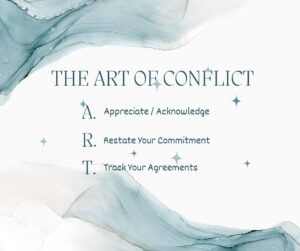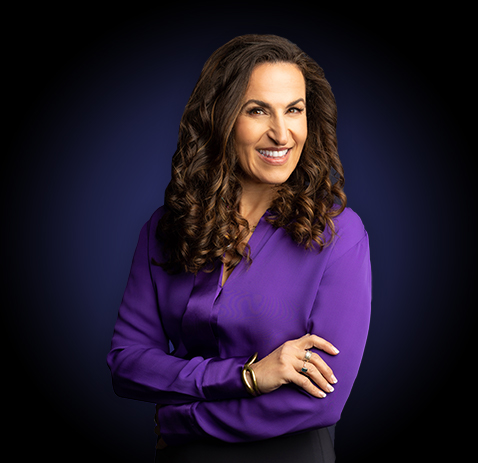UPSET In a World of Abundance
We live in times of tremendous abundance and security. Why do we get so upset about things that in the grand scheme of things are not so serious? And more importantly, how can we get free from the stress of it? What are the main reasons for our human upsets?
 Freedom From Stress
Freedom From Stress
Don’t get me wrong. I’m NOT saying that we should all become serene, even-tempered gurus who never get upset about anything. Trouble shows up when we feel out of control. When the upset has us, then we’ve lost our power to really resolve the problem. What follows is an exploration of how to powerfully take ownership – even when we feel completely trapped.
Upset would be ok if only we didn’t feel so stuck and miserable when it happens! Then again, just yesterday my son said to me, ‘Ain’t no appreciating the sunshine if it never rains.’ Well, he has a point!
Still, I think we thrive when we feel free. I might be upset for a while, but when I’m ready to stop being upset, I want to have the freedom to shift. Don’t you? Take a moment and jot down the kinds of upset you would like to be free from.
Case Study: James
James, Section Chief of Real Estate Procurement explained that he had transformed their district office into a lean productivity machine. His boss and team praised him repeatedly for how much their office accomplished. Their office produced maps and designs for their customers faster than any of the other 17 offices around the US. Now that the transformation had occurred, James was in charge of keeping it going.
James knew from years of performance reviews that his biggest weakness was empathy, and connecting with people on a personal level. That was always his least strong suit. The assessments all said so – and today, he was upset. He was doing everything right and it still wasn’t working!
He’d been taught to ask questions, have face-to-face time, and let others take the lead on their own projects. James believed he was doing all that. Still, his team was not responding well. His thought: “No matter what I do, It’s not enough.”
What Do you Want James?
When I asked him, “do you want to stay upset about this James?” He was stumped for a moment – and frankly a bit peevish. His reply was not an immediate no! He felt he should be upset. He felt there was no other choice.
“Ahhh – well that’s the rub isn’t it?”
He thought being mad at himself was totally justified, yet, staying upset with himself was keeping him from being connected with his team. James simply couldn’t see how to shift. He really didn’t want to stay stay in the same disempowered state of mind.
We’ll come back to James later.
———————————————-
Case Study: Fiona
Fiona, an executive I coach, called for our session quite upset.
“What’s going on?” I asked.
“I’ve been working with that concept we talked about, ‘agreements vs. expectations.’ I’ve been practicing it on my boyfriend.”
“That’s great! How’s that going?”
“It doesn’t work. We can’t make any agreements.”
“Why not?”
“He won’t talk to me”
And on she went, until it came out that he is not a big talker, or communicator, in any way. The details are not so important. The pattern is.
Here is where Fiona was stuck:
She wanted Mark to be different.
Can you relate? When you get upset, isn’t it always because you want someone or something to be different? Or perhaps it’s because someone is challenging your ‘enough-ness’? Or worse, in your own thinking you’re doubting your own enough-ness.
Uggh, that’s really the worst isn’t it?
Three Reasons For Upset
Fiona was doing all three really. She felt that Mark should talk to her more, contribute to the bills more (they have a baby together), share the housework and childcare more, make more money. Most of all she wanted Mark to appreciate and cherish her. She felt that things should be different.
Mark’s lack of appreciation and expressions of love had Fiona questioning whether she was enough. Was there something she needed to do differently? Or better? And she was angry because Mark didn’t appreciate her. At least, that is what she believed.
Similarly, James felt that no matter what he did, he simply wouldn’t be successful. James was angry because he thought it should be different. He was doing what everyone said he should. James had an internal voice that said he was defective because even when he did the right things it wasn’t enough. At least, that is what he was thinking.
- Something is wrong with the situation (It should be different)
- He thinks he isn’t enough (I can’t get it right)
- Others think he isn’t enough (I’m being criticized)
At the deepest level, these are the three causes of upset at play here. This is a really useful framework, however it takes a very deep level of self-awareness to make use of it. After all, what should Fiona do once she realizes that yes, in fact, she really does believe Mark should contribute more as a partner? All her friends agree, after all. So… now what? To see what is really driving her belief, she must be willing to look deeply within herself rather than look elsewhere for the cause.
The path forward is to shift. But how? How can that door marked “Freedom” be unlocked?
Doing The Work
Byron Katie, author, and expert at helping people get unstuck, invites us to interrogate our thinking. She asks us to consider the following questions in order to do The Work.
- Is it true?
- Can you absolutely know it’s true?
- Who are you (who are you being? How are you acting?) when you believe that thought?
- Who would you be without that thought?
- What is the turn around? (What different thought could you explore instead that offers a new way to be?)
How does that look?
James believed he was already doing everything he could do to connect well with his team and was feeling like a failure.
Q1: Is it true that you are already doing everything you can?
Yes
Q2: Can you absolutely know that’s true?
Well, no. Not really.
Q3: Who are you being when you believe that thought?
Stuck. Disempowered. Hopeless.
Q4: Who would you be without that thought?
Exploring. Looking for new ways to connect with my team. Optimistic.
Q5: What’s the turnaround?
Well – That I’m not doing everything I can to connect with my team. That there are more things I can explore.
Q6 (bonus): Who are you with that new thought?
Powerful. Free.
James and Fiona have both been coaching with me for some time. They are both pretty good at identifying the beliefs at the root of their upset. However, at the beginning of our time, it was harder for them to even recognize when they were upset in the first place. And then, they had to determine how their own thinking was causing their feelings. In the beginning it was helpful to use this next framework:
I.C.E. – Intention – Communication – Expectation
This is a different list of three reasons for upset that are also always at play, but on a different, perhaps more conscious level. I call it I.C.E. You see, it causes ice to form on our hearts.
- Thwarted Intention – We can get upset when we have a particular intention and something gets in the way.
- Undelivered Communication – When there is something that you want to say, about something, to someone, and you aren’t able to say it, or feel that you aren’t being heard.
- Unrealized Expectation – We can be upset by things not going the way we think they should.
In my experience when people have learned how to identify the thoughts that are driving their upset feelings and resulting bad behavior, they generally don’t spend much time in the I.C.E. But to know the underlying belief, it takes understanding the I.C.E. first.
Fiona was upset by Mark’s behavior because her intention is to have an intimate, connected relationship with him. This was being thwarted.
She got some relief when she yelled and screamed, because on the surface, her communications got delivered.
But then her expectation that he would respond to her communication by changing his behavior remained unrealized.
So back she was with her thwarted intention, compounded now by more communications that remained undelivered because she felt it was useless to bother. At the root was her unrealized expectation that sharing a baby with her boyfriend would be a joyful experience. A truly vicious cycle.
Remember, I am an executive and leadership coach. Fiona is a senior leader. Yet, this personal upset was the subject of our work, because personal stress always impedes excellence. Recently, Fiona did not get a promotion she wanted even though she was perfect for the job. She realized that she wasn’t showing up as powerfully and brilliantly as she would be without this upset.
BK The Work
Back to Byron Katie’s questions for a moment:
Fiona believed that she couldn’t make any agreements with Mark. She believed that agreements didn’t work with him because he isn’t a good communicator. In short Fiona believed that she was powerless in this relationship.
Q1: Is it true that you are powerless in your relationship with Mark?
Yes
Q2: Can you absolutely know that’s true?
Hmmm – I guess not. I’m not sure where my power lies though.
Q3: Ok Fiona. Who are you being when you believe that you are powerless?
Stuck. Miserable. Hopeless.
Q4: Who how would you be without the belief that you are powerless?
I would be looking for different ways to solve this problem – connect with Mark or maybe go on without connecting with him. [breakthrough]. I might realize that although I don’t want to leave him, maybe I can live my life just as I would if he wasn’t there. If he can connect with me then, well all would be well. If he can’t, then at least I am taking care of myself along the way. I’m already taking care of our baby and paying all the bills on my own. I can stop expecting him to be a different way. I can agree, for now, to accept him as he is (only choice really) and love myself enough to live my life in a way that supports me!
The Turnaround:
Q5: What’s the turnaround?
Well – That I can make agreements. Even if Mark isn’t communicating with me – I can stop having expectations of him and make agreements with myself!
Q6 (bonus): Who are you with that new thought?
Powerful. Free.
Remember the first causes of upset trio?
- Something is wrong here (things should be different)
- I’m not enough (can’t get it right)
- Others are challenging whether I’m enough (I’m being criticized)
Fiona believed something was wrong with her situation. After using these tools, she realized that her situation is exactly as she made it!
Where in your life do you complain about how things are – but do nothing to change it? Ouch right?!? I’ve been in that very hot-seat asking myself that very question.
Frequently.
It always leads to good things. So after Fiona and I talked through all this, she realized she has all the power she needs to either choose in fully or make a different choice about her situation.
James did the same thing. He realized his power.
His belief was that ‘I’m not enough to connect well with my team.’ Something is wrong with me. Mixed in was a bit of #3 that said, “Others don’t think I’m enough.” He was doing his best and it still wasn’t enough. And that was all layered over “Something is wrong here!”
The belief he was stuck on was, “I’ve done all I can – and it’s not enough.”
When he realized that he absolutely had the power and freedom to show up differently, and that he was absolutely enough, it was like someone lifted the veil. Suddenly, James could see possibility where there had been none.
Freedom Through Love, Truth & Radical Ownership
The path to freedom is to shine a giant, bright light of love on the fear. James’ fear was that he was simply not enough (coaching uncovers these erroneous beliefs and transforms them profoundly and permanently). Fiona’s fear was the same. Both also feared that there was something terribly wrong with their situation, and that others were challenging their ‘enough-ness.’ None of those things were true. Neither are they true any time I’m upset.
We can tell that fear is running the show when we think about this: Is there I.C.E.? In other words, do I have a Thwarted Intention? Am I holding back an Undelivered Communication? Am I frustrated by an Unrealized Expectation?
Yes. Probably one of those is true when you are upset.
Fiona faced all three, and at the root of her frustration was a fear that she was not capable of solving the issues with her boyfriend, and how they affected her at work. James faced all three issues as well. At root, he feared that he was not able to form closer relationships with his team (and it turned out, his wife).
By interrogating their core beliefs, both Fiona and James were able to do The Work (as Byron Katie calls it) and choose the light of love instead. Fiona discovered that with, or without, Mark’s cooperation, she can choose how to live her life, and feel her own power to create the life she wants.
That’s love.
James discovered that he in fact could be flexible and adaptive, connecting with people of all different dispositions effectively.
Fiona and James chose love over fear. That is the first and most important step toward taking deep ownership – and freedom.
In what ways can you also choose love over fear in your life?
To Your Freedom!
Dr. Lisa Hale is a professional speaker, author, executive coach and trainer. Lisa helps powerful people master self-leadership to amplify their power, presence and impact as leaders, parents, and in their personal relationships. To schedule a conversation with Lisa about change in your own life, click here: LEAD YOURSELF FIRST.
All names and identifying information are fictionalized to protect the privacy of clients – though the stories themselves are true.







